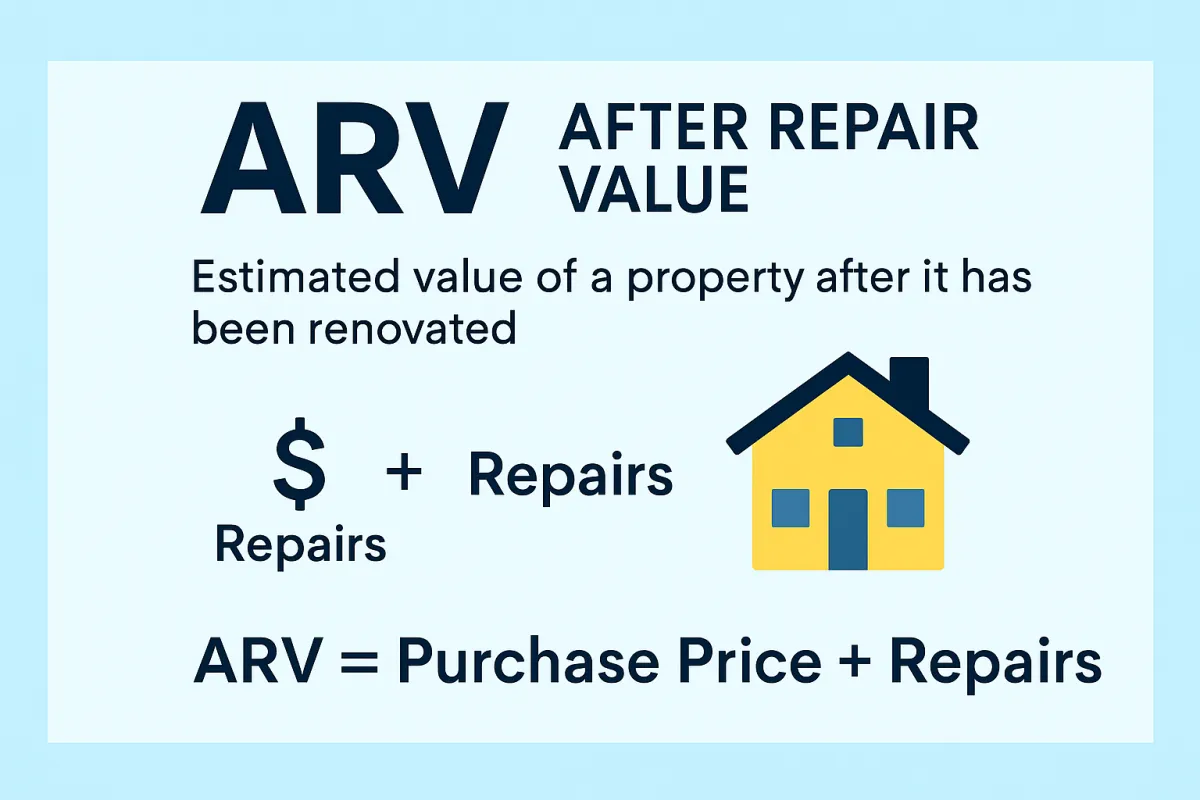
Maximizing Profits: Understanding and Calculating After Repair Value (ARV) in Real Estate
Maximizing Profits: Understanding and Calculating After Repair Value (ARV) in Real Estate
In real estate investing—especially when flipping or wholesaling—success hinges on knowing your numbers. One of the most important figures in your toolbox is the After Repair Value (ARV). Whether you're evaluating a distressed property or projecting returns on a renovation, ARV helps you forecast a property's true potential.
Let’s break down what ARV is, how to calculate it accurately, and how to use it to lock in profitable deals.
What is ARV?
ARV (After Repair Value) is the estimated value of a property after it has been fully renovated. It’s what the home could reasonably sell for on the open market, assuming all necessary upgrades and repairs have been made.
Understanding ARV is critical because it influences:
How much you should pay for the property
Whether the project is profitable
What kind of financing you can secure
How to Calculate ARV in 3 Steps
1. Find Comparable Properties (Comps)
Look for recently sold homes in the same neighborhood that are:
Similar in size (within ~200 sq ft)
Similar in age and layout
Recently renovated and sold within the past 3–6 months
2. Calculate Price per Square Foot
Take the sale price of each comp and divide it by the square footage. Then average these figures to get the market rate per square foot.
Example:
Comp 1: $300,000 / 1,500 sq ft = $200/sq ft
Comp 2: $310,000 / 1,550 sq ft = $200/sq ft
Average = $200/sq ft
3. Apply the Rate to Your Property
Multiply the average price per square foot by the square footage of your subject property.
If your investment property is 1,400 sq ft:
ARV = 1,400 x $200 = $280,000
Using the 70% Rule to Set Your Max Offer
The 70% Rule is a common guideline used by investors to determine the maximum amount you should pay for a flip.
Formula:
Max Purchase Price = (ARV x 0.70) – Estimated Repairs
Example:
ARV: $280,000
Repairs: $40,000
Max Purchase Price = ($280,000 x 0.70) – $40,000 = $156,000
This leaves room for unexpected costs and a healthy profit margin.
Why Getting ARV Right Matters
✔️ Avoid Overpaying: If you estimate ARV too high, you risk cutting into—or eliminating—your profit.
✔️ Secure Financing: Lenders often use ARV to determine your loan terms for rehab projects.
✔️ Mitigate Risk: A solid ARV helps you make confident, data-driven decisions.
Tips for Accurate ARV Estimates
Stick to Sold Comps: Don’t use active listings—only closed sales show true market value.
Watch Market Trends: Neighborhoods can shift quickly. Understand whether values are rising, falling, or holding steady.
Don’t Guess Repairs: Always walk the property or bring in a contractor before estimating rehab costs.
Consult a Local Agent or Appraiser: When in doubt, get a second opinion from someone who knows the local market.
Final Thoughts
Mastering ARV is one of the fastest ways to gain confidence and accuracy in your real estate deals. Whether you're flipping your first house or scaling your wholesaling business, knowing how to estimate ARV the right way gives you a sharp edge in a competitive market.
💡 Want more strategies like this? Join The Profit Playbook to get actionable tools, training, and real-world insights to grow your investing business with confidence.

